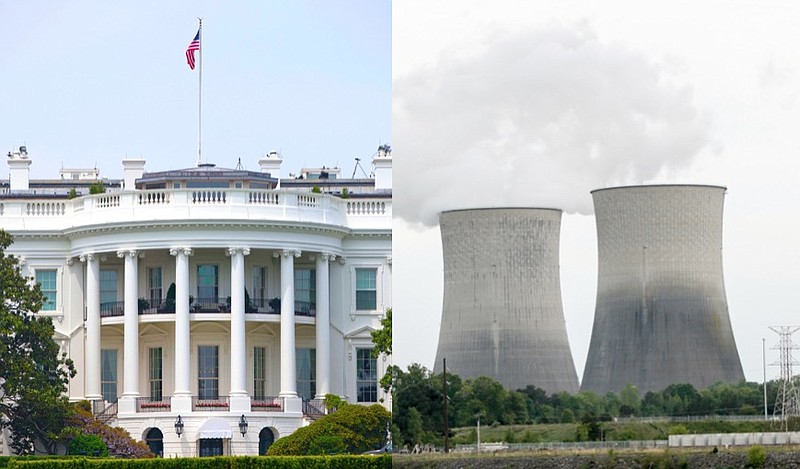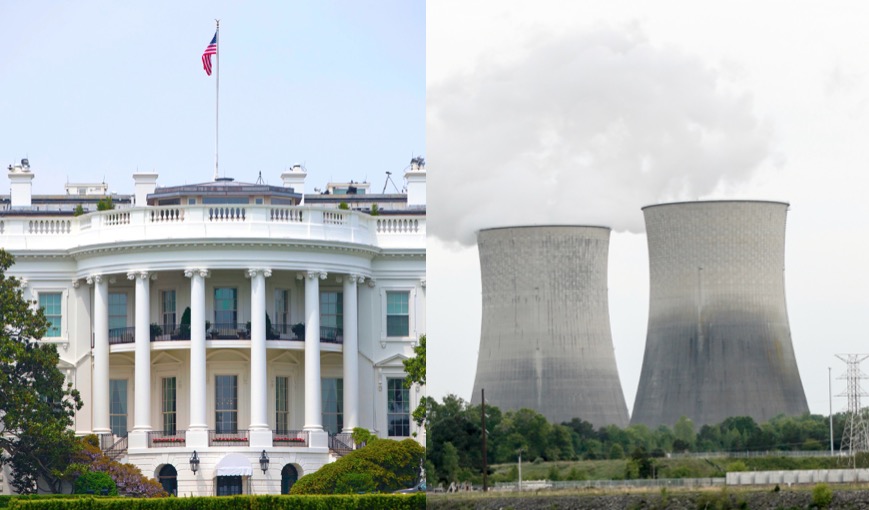A new study commissioned by the Economic Policy Institute suggests that selling or privatizing the Tennessee Valley Authority would raise power costs and hurt economic development and research in TVA's seven-state region.
The liberal think tank is not often at odds with President Barack Obama and supportive of the positions of conservative Southern Republicans. But on the question of cutting federal ties to America's biggest government utility, researchers for the Economic Policy Institute are in agreement with Tennessee's GOP lawmakers and against an Obama administration plan to phase out the federal role in the New Deal agency created in 1933 by President Franklin Roosevelt.
"Over its 80-year existence, the TVA has had an excellent track record in almost every area of its operation, and its success has delivered substantial benefits throughout the Tennessee Valley," Dr. Joel Yudken, an economist and principal of High Road Strategies LLC, concluded in a 44-page study of TVA's finances. "The TVA is addressing its serious financial problems and its new leadership is preserving its capabilities as a system that provides wide-ranging benefits to the region and people it serves."
Yudken said under TVA's current CEO, Bill Johnson, the federal utility is reducing its debt and should remain well below the $30 billion borrowing cap set for TVA by Congress. Although initially supported with taxpayer funds, TVA hasn't received any federal taxpayer support in the past decade and a half and is still providing vital environmental, economic, flood control and energy research through its control of the 657-mile Tennessee River.
Budget planners for the Obama administration are studying whether to divest part or all of the federally-owned TVA as a means to pay down the U.S. debt.
The Obama administration's budget plans in each of the past three years have called for reducing or eliminating the federal government's role in programs such as the TVA "which have achieved their original objectives or no longer require Federal participation." Worried that the TVA's bond debt, then at $26 billion, could exceed its $30 billion statutory cap and thus impact the federal debt, the administration has suggested ending federal ties in order to "help mitigate risk to taxpayers."
But U.S. Sen. Lamar Alexander, R-Tenn., among others, has criticized talk about privatizing TVA, claiming it will only raise electricity rates without saving taxpayers any money.
Critics of TVA contend that investor-owned utilities could fill TVA's role without the support and risk to the federal government.
But Yudken said privatizing the TVA, which accounts for about 3 percent of U.S. electricity capacity and serves over 9 million people, would increase electricity rates by requiring any new owner to pay to buy TVA, plus pay the higher private borrowing rates required by shareholders and bondholders in the private market.
Because TVA enjoys the implied backing of the federal government, it is able to borrow at just over the U.S. treasury rate and at a significant discount to what investor-owned utilities pay. Although TVA makes in-lieu-of-tax payments, it does not pay federal income taxes and does not have to turn a profit for shareholders.
"It seems that the whole region benefits in a number of important ways from TVA and it just doesn't make sense to try to break up or sell TVA," Yudkin said.
The economist bills his study as "If It Ain't Broke, Don't Fix It! "
Privatization of the TVA would divide its electric power system into independent and no longer accountable or coordinated component parts, Yudkin said. Any new private owners of the TVA's electric power assets would significantly increase electric power rates compared to those typically charged by the TVA because there would be have additional costs.
"Instead of a single authority with responsibility for planning, implementing, and governing its various functions, privatization would lead to many competing entities that may or may not coordinate effectively in carrying out their missions," Yudken said.
Contact Dave Flessner at dflessner@timesfreepress.com or 423-757-6340.
News report from February:

